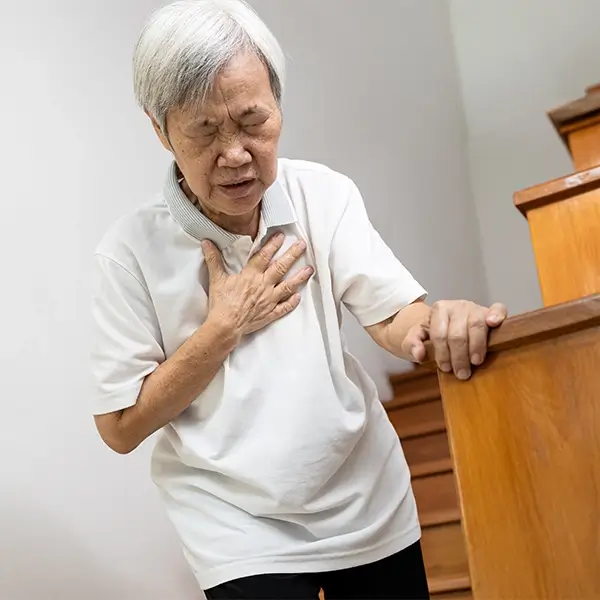Radon is an odorless colorless gas produced as a result of the decay of uranium in soil and water. This naturally occurring gas gets into homes through cracks in the foundation, soil in exposed crawl spaces, and drinking water. It can be found in every state across the US and, when left unmitigated, can concentrate to significant levels, putting you and your family at risk of exposure. For the safety of yourself and your family, it is imperative that we not only test routinely for radon, but also be trained to recognize the potential signs of exposure.
What Makes Radon Dangerous?
What makes radon dangerous is its radioactivity. As radon breaks down in the lungs, it releases charged particles that can damage the lung tissue at the cellular level. This damage can cause cells to grow out of control and become cancerous. The more exposure over time, the greater the risk as more lung tissue is affected.
Long-Term Symptoms of Radon Exposure
Unfortunately, however, there are no short-term symptoms to speak of when it comes to radon exposure, which makes it even more difficult to recognize. Symptoms of radon exposure are often not visible until a great deal of time has passed, taking decades to manifest in some cases. However, after long-term exposure, risk of lung cancer greatly increases along with an assortment of symptoms that may manifest such as:
Other Radon Related Illnesses
Though the most studied, lung cancer is not the only disease shown to have connections with radon exposure. While limited, long-term radon exposure has also shown to increase the frequency of nonmalignant lung disease such as emphysema, pneumonia, and pulmonary fibrosis. There has also been recent studies showing a possible connection between radon exposure and chronic obstructive pulmonary disease (COPD).
How to Protect Yourself from Radon Exposure
Radon exposure builds slowly over years before symptoms start to become apparent. By the time issues like persistent cough, breathing trouble, or infections appear, cancer has often already developed or is close. This long delay is why early testing is so important, even if you are showing no symptoms!
Southwest Radon Eliminators is here to cover all your radon testing needs. Our highly skilled IEA-NRPP certified radon measurement professionals are equipped to perform both short and long-term radon testing services to homes and businesses across the Southwest. We also install residential and commercial radon mitigation systems. Contact us today!
